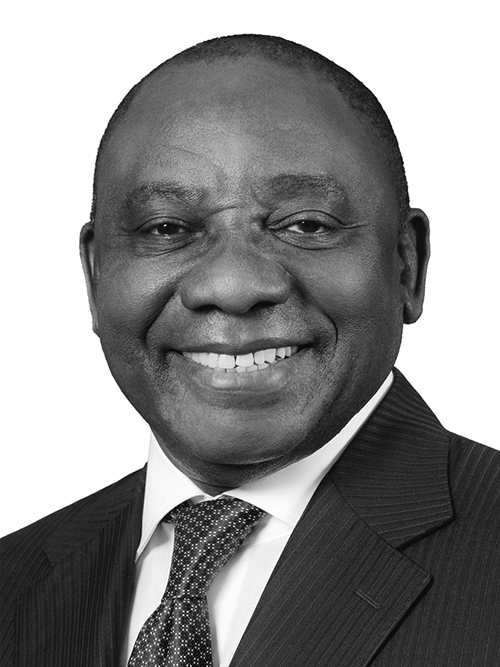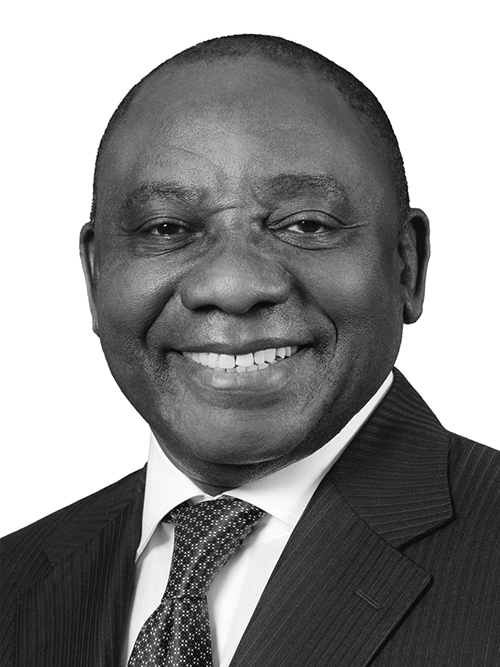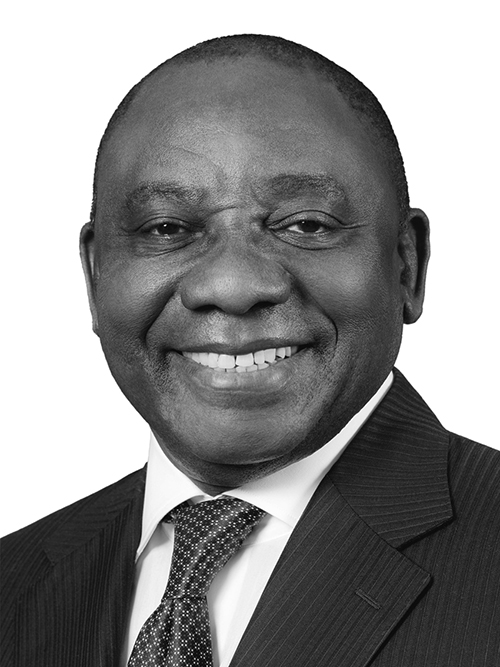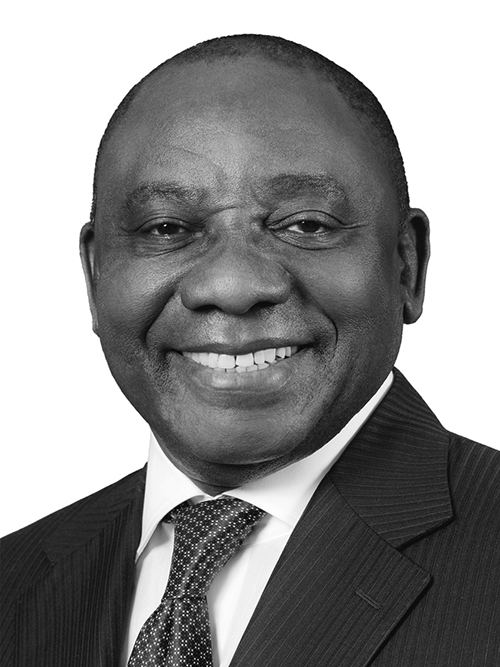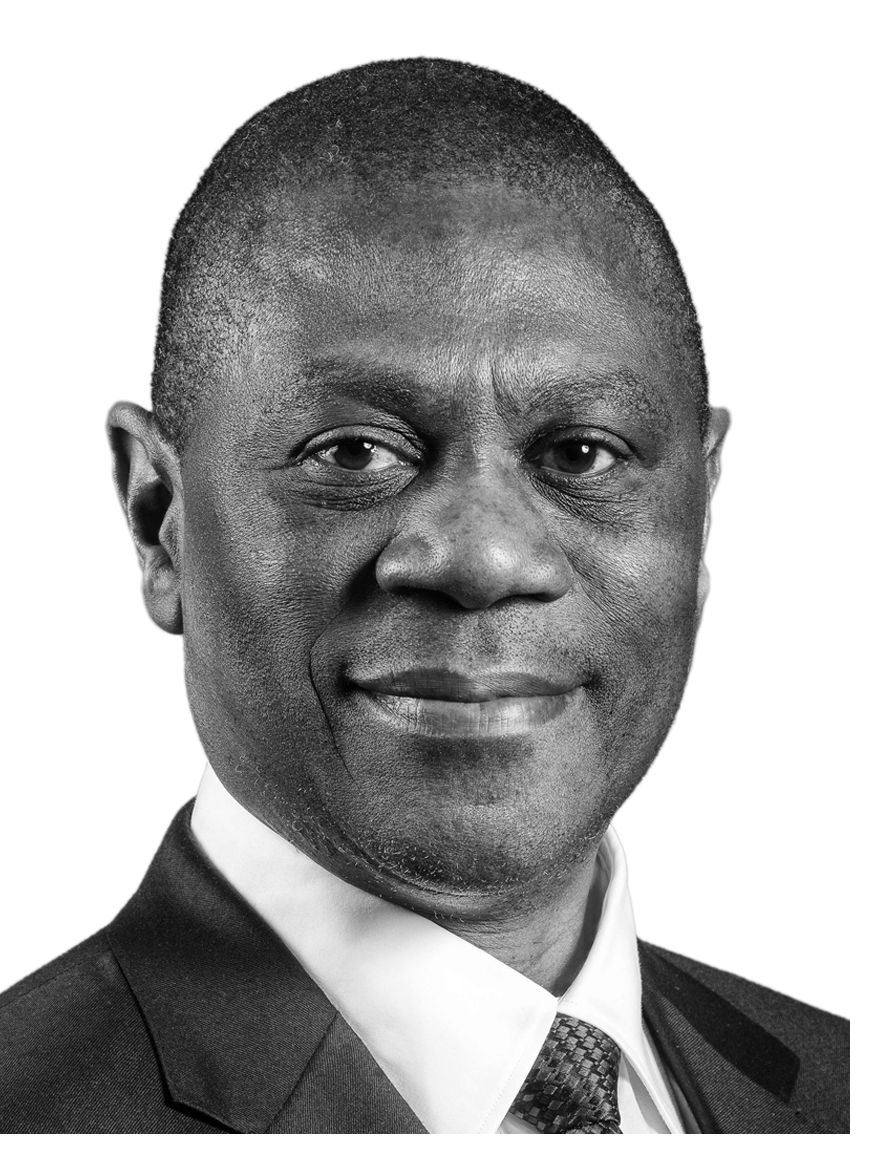Programme Directors,
Deputy President Shipokosa Paulus Mashatile,
The family and members of the N’wamitwa Royal House,
Your Majesties,
Chairperson of the Valoyi Royal Council, Mr Ben Shipalana,
Premier of Limpopo, Dr Phophi Ramathuba,
Executive Mayor of the Mopani District Municipality, Cllr Pule Shayi,
Moderator of the Evangelical Presbyterian Church, Rt. Rev. Advocate SPH Nyambi,
South African Police Service Chaplain, Lt. Col (Rev) RM Mahlangu,
Fellow Mourners,
Good Morning,
It is with great sorrow that we today bid farewell to a leader, a pioneer and a great daughter of the soil, Hosi Dr Phylia Tinyiko N’wamitwa II.
The VaTsonga nation has lost a mother.
Those who have experienced the pain of losing a mother will attest that it is one of the deepest wounds.
On behalf of the Government and the people of South Africa we offer our deepest and profound condolences.
Since the news of the passing of Hosi N’wamitwa was announced on the 9th of February, tributes have been pouring in from South African citizens and from beyond our borders.
She was a towering figure who embodied humility and was passionate about the development of her people.
As the first female Hosi of the VaTsonga, she was a trailblazer.
She demonstrated to this community, to South Africa, to Africa and indeed to the world the right and the ability of women to be traditional leaders.
Above and beyond her royal duties, Hosi N’wamitwa had an illustrious career as an educator and was a seasoned political activist.
She participated in the CODESA negotiations that preceded South Africa’s first democratic elections in 1994, and served as a Member of Parliament for the African National Congress from 1994 to 2009.
Most recently, she accepted my invitation to be a member of the Eminent Persons Group, which is entrusted with guiding and advising on the National Dialogue.
The late Hosi was also a philanthropist who leaves behind a rich legacy of community development and advancing the rights of rural women.
She was firm that women should receive equal treatment in traditional courts on matters relating to customary disputes.
She was a steadfast advocate for women’s rights and a powerful voice against gender-based violence.
She was a custodian of the culture of the VaTsonga, and supported the work and efforts of the N’wamitwa Cultural Village and Museum.
Despite her advancing years, she remained full of vigour and determined to still contribute to the upliftment of her community.
She wanted to see more jobs being created for the local community.
In this regard, she was passionate and excited about the construction of the N’wamitwa Dam, a bulk water project being spearheaded by the government of Limpopo and the Department of Water and Sanitation.
Even though our hearts are heavy at the departure of our mother and comrade, we celebrate her remarkable life and her contribution to the betterment of South Africa.
In 2008, when she was officially installed as the first female Hosi of the VaTsonga, history was made.
When the Constitutional Court ruled that the Valoyi Traditional Authority was entitled to adapt its customary succession rule to allow a woman to become Hosi, it was a great advance for all traditional communities in South Africa and on the continent.
Going to court to assert her right to chieftaincy took great courage, resilience and strength of character.
She stood up to claim the rights guaranteed by our Constitution.
In this sense, Her Royal Highness embodied the spirit of the women of 1956 who marched on the Union Buildings, the seat of apartheid power, to assert that they would not tolerate being oppressed and marginalised.
The discriminatory laws against which they stood were still in place twelve years later, in 1968, when the late Hosi’s father, Hosi Fofoza N’wamitwa passed away.
Black women lived at the intersection of racial domination and legal exclusion.
In the cities, villages and farms, they were harassed by the apartheid regime.
They could not work or live where they chose, or study a profession of their choice.
They had no choice but to become domestic workers, farm workers, menial labourers and informal traders to survive and feed their families.
Women who were part of resistance against apartheid were treated brutally, jailed, tortured, assaulted and even killed.
Women were treated as perpetual minors, with their legal identity tied to their fathers, husbands or male guardians.
Black women could not enter into contracts freely. They could not own land or register property in their own names.
Traditional marriages were not recognised, leaving millions of women financially destitute if they divorced or their husband died.
In far too many instances, customary law reinforced state policy.
The late Hosi N’wamitwa II was not spared the humiliation of these discriminatory laws. As customary law at the time did not permit a woman to become Hosi, her right to the chieftaincy as the only child of her late father was not recognised.
Yet, like the brave women of 1956, she did not accept her fate. And in challenging it, she transformed her fortunes and altered the course of our country’s history.
After a long battle, the Constitutional Court ruled that the Valoyi Traditional Authority was indeed entitled to apply a developmental and transformative approach to customary law in dealing with a chieftaincy succession dispute.
It affirmed that customary law and constitutional rights are not in opposition, but are complementary.
As we reflect today on the legacy of Hosi N’wamitwa II, the symbolism of her installation is most enduring.
It signalled that tradition cannot be invoked to entrench the oppression of women and gender discrimination.
She had to fight to claim her birthright and her rights as a woman. In doing so, she ensured that all future Royal daughters do not suffer the same fate.
As agriculturalists, the people of this province know that one cannot reap the harvest before ploughing.
The emancipation of women in this country and their right to equality was not extended as a favour.
It was achieved through decades of tireless struggle, of great advances and painful setbacks.
Since the advent of democracy we have made significant progress in advancing the rights of women in traditional communities to equality and dignity – to have their marriages recognised, to own property and land, and to inherit.
Thanks to the efforts of the pioneering Hosi N’wamitwa II and the transformation of our laws, more women hold positions of authority in traditional communities, including on traditional councils.
We continue to work with all the houses of traditional leadership to advance the position of women in their activities and programmes.
At the same time we know that today women face many challenges: poverty, financial exclusion, unemployment and the scourge of gender-based violence and femicide.
Rural women bear the brunt of these challenges.
Many live in communities where they face discriminatory practices.
The challenge to us all as we celebrate the life of the late Hosi is to work together as government, as traditional leaders, as civil society and as communities to give effect to her legacy.
She was a traditionalist and a champion of gender equality.
She respected and upheld cultural practices and traditions, but did not hesitate to speak out if these violated the rights of others.
To honour her memory, I call on all organs of State, the institutions of traditional leadership and all communities to declare that never again will culture and tradition be used as an excuse for the oppression, exclusion and subjugation of women.
Let us work to ensure that the full and meaningful equality of men and women is lived out in every village, town, city and province.
We call on the youth of this community and the youth of our country to ensure that the legacy of the late Hosi N’wanitwa lives on in your words and actions.
We are counting on your energy and vision to pick up where she left off for the betterment of your villages, towns, the province and the country at large.
Let us who remain behind pick up the spear that has fallen.
Let us ensure that in the onward march towards full gender equality in South Africa, that we leave no-one behind: even in the most rural and remote community.
Fellow Mourners,
In Proverbs 31:10, the Holy Scriptures speak of the good woman. They say:
“She sets about her work vigorously; her arms are strong for her tasks. She sees that her trading is profitable, and her lamp does not go out at night.
“She opens her arms to the poor and extends her hands to the needy.
“She is clothed with strength and dignity... She speaks with wisdom, and faithful instruction is on her tongue.
“She watches over the affairs of her household and does not eat the bread of idleness. Her children arise and call her blessed.”
Today this community, who are all the children of Hosi N’wamitwa II, who have all benefited from her faithful instruction, arise and call her blessed.
She was a pillar of this community and our nation.
We mourn her and we will forever remember her.
Surely goodness and mercy followed her all the days of her life. May she dwell in the house of the Lord for ever.
To the Shilubana and Valoyi families, loved ones and friends, we share in your sorrow.
Famba kahle Mthondolovhani, Famba kahle Khalanga,
N’wina vaka ncila a va ololi, loko u olola wa tshoveka.
N’wina vo khandziya nsinya mi chika hi rhavi.
Etlela hi kurhula Hosi N’wamitwa
Eka Vuhosi bya ka N’wamitwa, mi va na kurhula eka nkarhi lowo tika swinene.
I thank you



